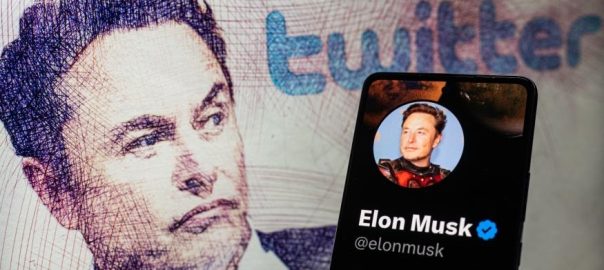US adults are spending less time on Twitter since Elon Musk took over
We’re starting to get a clearer picture of how Elon Musk’s takeover of Twitter has changed the platform. According to new data from Pew Research, a “majority” of US Twitter users have “taken a break” from the platform over the last year, and many of the site’s “most active” users are tweeting less often than they used to.
“Six-in-ten Americans who have used Twitter in the past 12 months say they have taken a break from the platform for a period of several weeks or more during that span,” Pew writes in a report based on a survey of 10,701 Twitter users. In a separate report, Pew also studied the “actual behavior” of 1,002 of Twitter’s “most active” users and found “a noticeable posting decline in the months after” Musk’s acquisition. “These users’ average number of tweets per month declined by around 25% following the acquisition,” Pew noted.
Together, these stats suggest that engagement on Twitter has declined since Musk’s takeover, at least among formerly active users. That’s particularly notable because, as Pew notes, the vast majority of Twitter users are lurkers, not posters. Twenty percent of Twitter users send 98 percent of all tweets.
At the same time, it seems many of Twitter’s most active users haven’t given up on the platform entirely. According to Pew, only 25 percent of “highly active” users said they are “not very or not at all likely to be on Twitter a year from now.”
Pew didn’t poll Twitter users on the reasons for their pullback from Twitter, or if Musk’s actions were directly responsible for the shift. It also doesn’t take into account how many new users may have joined Twitter in the last year. But the new numbers offer new insight into the growing ranks of Twitter quitters who may be spending more time on alternative platforms like Mastodon and Bluesky since Musk’s takeover,
Unsurprisingly, Pew also found that Musk himself has become even more of a main character on Twitter over the last year. “On average, adult Twitter users in the U.S. mentioned Musk in a tweet just once between Jan. 1 and April 13, 2022, before he announced his intention to acquire the platform,” the report says. “Since then, however, references to Musk have become much more common on the site. These users tweeted about him an average of three times between April 14 and Oct. 26, 2022 – while Musk was in the process of acquiring the platform – and an average of six times in the months after the sale was finalized.”
The reports come as Musk has named a new CEO in former NBCU executive Linda Yaccarino. Yaccarino, who is slated to start in the coming weeks, is expected to draw on her ad industry experience to try to win back advertisers, many of whom have fled following controversial policy changes by Musk. Whether she’ll be able to win back the much sought-after “highly active tweeters,” though, is unclear. With Musk remaining as CTO and executive chairman, he’s likely to continue to be Twitter’s most influential — and controversial — user for the foreseeable future.
(7)
Report Post





